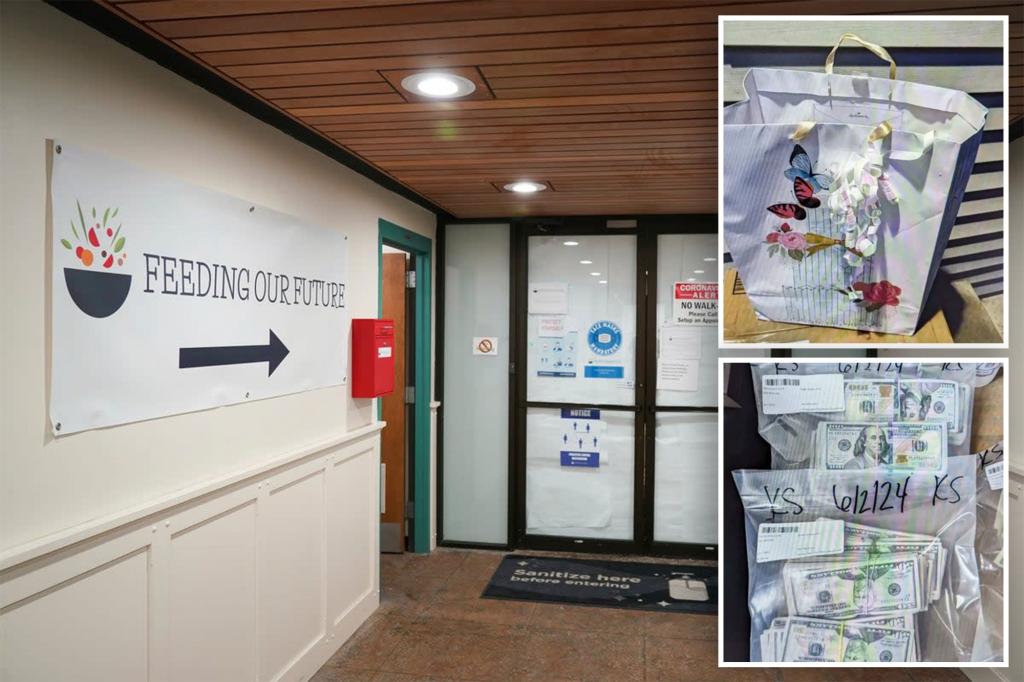A jury in Minnesota convicted five residents for their roles in a scheme to steal over $40 million meant to feed children during the coronavirus pandemic. The case garnered attention when a juror was bribed with $120,000 in cash, leading to the dismissal of the juror and another jury member. Federal prosecutors called the case one of the nation’s largest COVID-19-related frauds, with over $250 million in federal funds taken, of which only about $50 million was recovered. The defendants faced charges including conspiracy, wire fraud, money laundering, and federal programs bribery, culminating in a split verdict with two acquittals.
The defendants, including Abdiaziz Shafii Farah, Mohamed Jama Ismail, Abdimajid Mohamed Nur, Mukhtar Mohamed Shariff, and Hayat Mohamed Nur, were found guilty on most counts, while Said Shafii Farah and Abdiwahab Maalim Aftin were acquitted. Defense attorneys argued that the defendants provided real meals to real people, despite the allegations. An Associated Press analysis revealed that billions in federal COVID-19 relief funds were stolen nationwide, amounting to over $280 billion, with an additional $123 billion wasted or misspent.
The judge and attorneys learned of the bribery attempt in the Minnesota case, leading to the sequestration of the jury and the defendants’ cellphones being seized for evidence. According to an FBI agent’s affidavit, a woman attempted to bribe a juror with a bag of cash containing around $120,000. This incident raised concerns about potential jury tampering and the involvement of individuals with access to the juror’s personal information in the alleged fraud conspiracy at the heart of the trial.
The food aid involved in the scheme came from the U.S. Department of Agriculture and was administered by the state, funneled through nonprofit organizations and other partners to provide meals for those in need. Federal prosecutors alleged that only a fraction of the funds received through the Feeding Our Future nonprofit went towards feeding low-income children, while the rest was spent on luxury items such as cars, jewelry, travel, and property. The defendants collectively stole over $40 million through fraudulent activities, including producing fake invoices, running shell companies, and money laundering.
The defense argued that investigators failed to recognize the defendants’ efforts to provide meals to children in need and maintain that they did not engage in fraudulent activities. While 18 other defendants have pleaded guilty, Aimee Bock, the founder of Feeding Our Future, maintains her innocence and awaits trial. Bock denies any involvement in fraud and claims to have not witnessed any fraudulent activity among her subcontractors. The case highlights the prevalence of fraudulent schemes related to COVID-19 relief funds, with billions stolen across the country, leading to numerous criminal charges and investigations by federal authorities.
The attempted bribery incident and subsequent trial shed light on the widespread fraud and corruption surrounding pandemic relief funds in Minnesota. As federal authorities continue to investigate such cases, it is essential to hold accountable those who exploit emergency aid meant for vulnerable populations. The split verdict in this trial underscores the complexity of proving guilt in cases involving financial crimes and the need for thorough investigations to ensure justice is served. In the face of the ongoing challenges presented by the pandemic, upholding the integrity of relief efforts and preventing fraud remains a critical priority for law enforcement and regulatory agencies.












